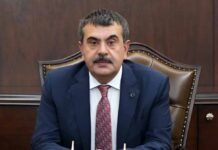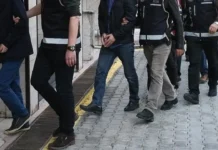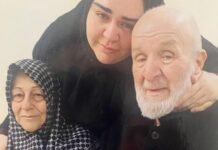In sharp contrast to the narrative of Turkey’s ruling Justice and Development Party (AKP) regarding the masterminds of a failed coup in Turkey on July 15, 2016, former brigadier general Gökhan Şahin Sönmezateş, a defendant in a coup trial, has said it was not the Gülen movement that organized the abortive putsch but rather a “state conspiracy,” Turkish Minute reported.
Sönmezateş was the commander of a team that targeted President Recep Tayyip Erdoğan’s hotel during the night of the failed coup. He has been handed down multiple aggravated life sentences on coup-related charges.
The remarks of the former brigadier general came during a coup trial at Ankara’s Sincan Prison on Tuesday and were quoted by journalist Müyesser Yıldız in a column on her personal website.
According to Yıldız, Sönmezateş once again stated that he had participated in the “revolution” but that it wasn’t organized by FETÖ, a derogatory term coined by the Turkish government to refer to the faith-based Gülen movement as a terrorist organization.
“MİT [the National Intelligence Organization] knows that there are so many high-level people who participated in this coup, who are not members of FETÖ. I’m not giving their names since I don’t have their permission,” Sönmezateş said, adding that before the coup trials began, everyone was ordered not to talk about Hulusi Akar, the then-chief of general staff and current AKP lawmaker.
When the presiding judge asked him who gave the order or orchestrated the attempted coup, Sönmezateş said they were his commanders, “the men of Hulusi [Akar].”
Sönmezateş said his commanders used arguments such as democracy turning into despotism under AKP rule; many government institutions, especially the police, surrendering to reactionaries; and Turkey’s closeness with Iran reaching dangerous levels to convince him to stage a coup.
“The revolution was a kind of police action. … The core staff to participate in the coup was 100-150 people. … MİT … [and] police intelligence know the plan. … First … Erdoğan would be arrested. Eight or nine senior officials would be taken and brought to court immediately. There were no tanks … and no soldiers taking to the streets [in the original plan]. … It went off-plan in a way that I still can’t understand,” Sönmezateş said.
The former brigadier general said that July 15 was a “conspiracy set up by the state” and that they are its “victims.”
He added that no light can be shed on the coup attempt unless Akar; Yaşar Güler, the deputy chief of general staff at the time; Hakan Fidan, the then-head of MİT; former Special Forces Commander Lt. Gen. Zekai Aksakallı, one of the key figures who foiled the coup attempt; Engin Dinç, former director of the Trabzon police intelligence unit; and MİT operative Sadık Üstün give statements in court.
Turkey experienced a military coup attempt on the night of July 15, 2016 which, according to many, was a false flag aimed at entrenching the authoritarian rule of Erdoğan by rooting out dissidents and eliminating powerful actors such as the military in his desire for absolute power.
The failed coup killed 251 people and wounded more than a thousand others. The next morning, after announcing the coup had been put down, the Turkish government immediately started a wide-ranging purge of military officers, judges, police officers, teachers and other civil servants that ultimately led to the dismissal of more than 130,000 from their jobs.
On the night of the abortive putsch, President Erdoğan immediately blamed the Gülen movement for the attempt. He has been targeting followers of the movement, a faith-based group inspired by Turkish cleric Fethullah Gülen, since the corruption investigations of December 17-25, 2013, which implicated then-prime minister Erdoğan, his family members and his inner circle.
Dismissing the investigations as a Gülenist coup and conspiracy against his government, Erdoğan designated the movement as a terrorist organization and began to target its members. He locked up thousands including many prosecutors, judges and police officers involved in the investigation as well as journalists who reported on them.
Erdoğan intensified the crackdown on the movement following the coup attempt. Gülen and the movement strongly deny involvement in the abortive putsch or any terrorist activity.















